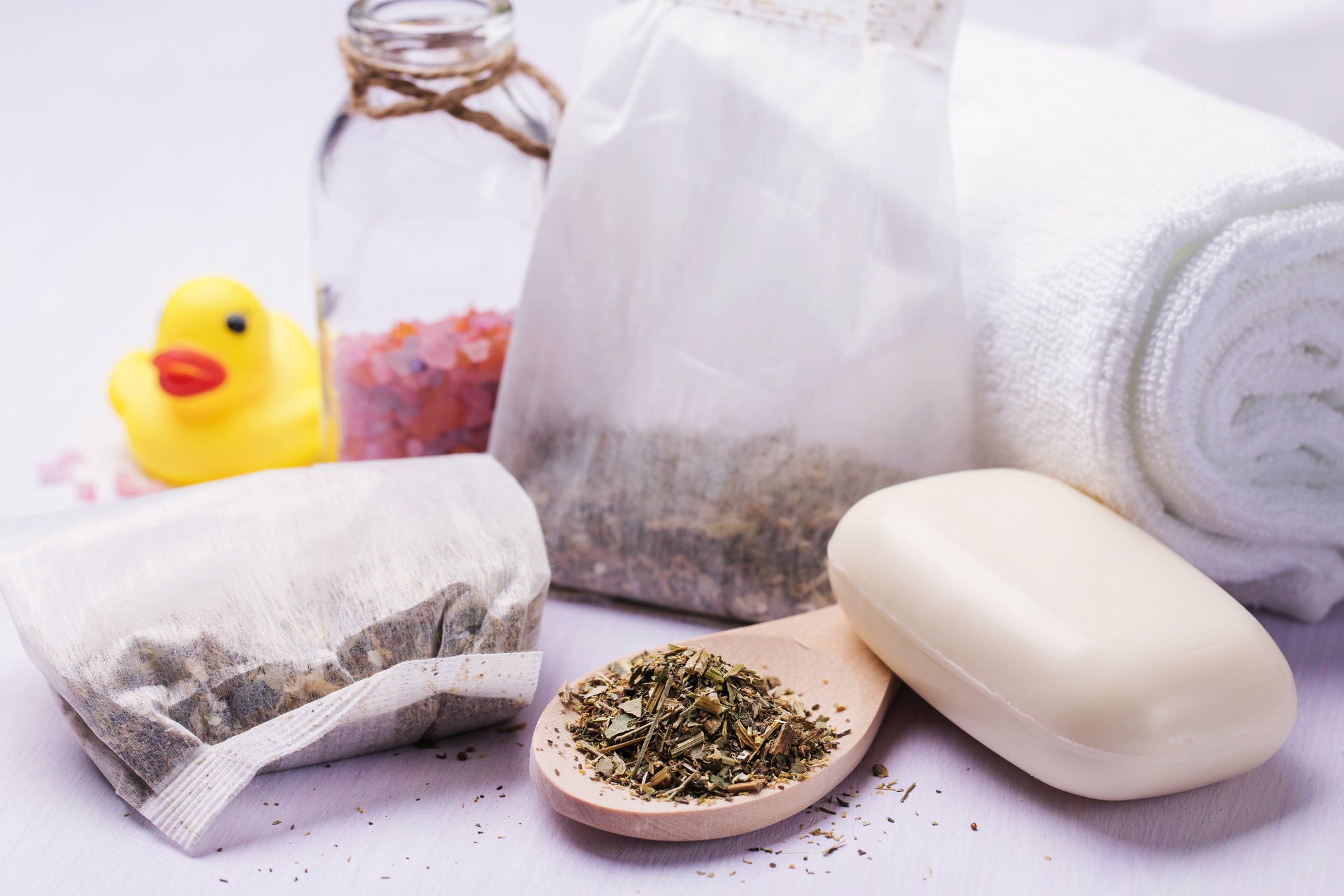Get Easy Health Digest™ in your inbox and don’t miss a thing when you subscribe today. Plus, get the free bonus report, Mother Nature’s Tips, Tricks and Remedies for Cholesterol, Blood Pressure & Blood Sugar as my way of saying welcome to the community!
Exploring the benefits of green tea for your skin

We’ve all heard about the many benefits of drinking green tea. But did you know that the polyphenolic compounds present in green tea have anti-inflammatory, antioxidant and anticarcinogenic properties beneficial to your skin?
What are polyphenols? Polyphenols are all-natural and derived from plants, nuts, fruits and vegetables. There are three types of these natural chemicals, which are called catechins, that have potent therapeutic effects on various skin conditions.
Rosacea
Imagine having clear, flawless skin. People with rosacea have just the opposite. Rosacea is an inflammatory skin condition leading to redness, bumps, pimples and thickening of the skin. This skin condition worsens if left untreated and often appears on fair skin, especially the face, chin, forehead and cheeks.
There is evidence about the main polyphenol component of green tea, EGCG, containing antioxidant, photoprotective and anti-inflammatory properties, reducing redness and inflammation on the skin of rosacea patients.
Atopic dermatitis
Atopic dermatitis (eczema) makes your skin red and itchy, and can occur at any age. These red and itchy symptoms vary widely and can be uncomfortable. Patients have traditionally used corticosteroids, which have many adverse side effects. A 2012 pilot study indicated that green tea bath therapy using green tea extracts is a safe and effective non-steroidal therapy that results in marked improvements for daily pruritus.
Wound healing
Chronic non-healing wounds affect millions of patients every year, along with a significant reduction in quality of life. Dr. Stephen Hsu, a cell biologist at the Medical College of Georgia, discovered EGCG reactivated dying skin cells, making DNA and producing more energy. In addition, the researchers found that EGCG helped to accelerate the wound-healing process and prevent scarring.
Applying green tea has anti-infective and anti-bacterial properties that enhance wound healing. It’s even been shown to work against methicillin-resistant Staphylococcus aureus (MRSA). These benefits may help reduce reliance on traditional antibiotics and cut down on antibiotic resistance.
Green tea baths
Although many people prefer the speed of showers, the love affair with tub baths has existed for centuries. But if you thought herbal or Epsom bath salts and bubbles were the limit for an indulgent bath, think again…
Try a green tea bath. The idea is to steep your tea for 15 minutes, then add it to your bathwater. Research supports the benefits of tea when bathing because of its antioxidant and antimicrobial qualities. The skin is the largest organ in the body, and bathing with tea allows it to absorb the tea and nutrients significantly faster than when drinking it.
Here are several benefits of a tea bath…
- Fights free radicals
- Reduces inflammation
- Reduces dandruff
- Helps treat acne
- Soothing and detoxifying
- Helps repair sun damage
- May delay skin cell aging
- Calming and refreshing
- Eases muscular pain and bruises
- Softens skin
Many individuals prefer to combine other herbal teas with green tea for additional benefits…
- Chamomile is relaxing and can help soothe pain.
- Lavender is calming and beneficial as a sleep enhancer.
- Jasmine can be refreshing for the skin and enhances the mood.
- Rose petals soften the skin and relax the body.
- Peppermint reduces inflammation and soothes irritated skin. When combined with Epsom salts, it makes for a very detoxifying bath.
And if you’re a fan of Epsom salts or essential oils, you can still use them with the herbs.
When taking a tub bath, it’s essential to acknowledge the potential dangers of water that is too hot. Very hot water can cause temporary dizziness and or muscle weakness — and it’s very drying and damaging for the skin.
Pregnant women should also use precautions and check with their doctors before taking a hot bath.
- Anti-angiogenic effects of epigallocatechin-3 gallate in human skin.
- Treatment of Atopic Dermatitis Associated with Malassezia sympodialis by Green Tea Extracts Bath Therapy: A Pilot Study.
- Green Tea Linked to Skin Cell Rejuvenation
- Anti-infective properties of epigallocatechin-3-gallate (EGCG), a component of green tea
- Green Tea Bath Benefits: Why on earth would anyone bathe in tea?













